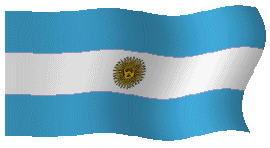
B"H
Jewish  Tours
Tours
 Buenos Aires, Argentina
Buenos Aires, Argentina

The enduring relevance of Hannah Arendt
by Avishay Artsy
She was a Holocaust survivor, a German-born Jewish intellectual and one of the
most significant and controversial political theorists of the past century.
Hannah Arendt shocked the world with her New Yorker magazine dispatches from the
infamous trial in Israel of high-ranking Nazi officer Adolf Eichmann. Her
portrayal of Eichmann as a mundane, rule-following bureaucrat (rather than a
monstrous psychopath) led to widespread disapproval in the Jewish world.
The new documentary “Vita Activa: The Spirit of Hannah Arendt” provides a more
comprehensive portrait of Arendt’s life and legacy, though its focus is the
much-repeated and often misunderstood concept of the “banality of evil.”
In her 1963 book about the trial, “Eichmann in Jerusalem: A Report on the
Banality of Evil,” Arendt describes Eichmann as unable, or unwilling, to think
for himself, saying he spoke in “stock phrases and self-invented clichés,” and
claimed to be just following Adolf Hitler’s orders.
“The idea of the ‘banality of evil’ is popping up everywhere,” the film’s
Israeli director, Ada Ushpiz, said in a phone interview. “It’s not only in the
political scene, it’s also in the personal. You always see the same dynamics of
evil penetrate into the world. The same tactics: ‘I must do it.’ ‘It’s a
necessity.’ ‘I don’t have any other choice.’ You saw it in the last war, when I
was editing this movie and heard the television telling me that we don’t have
any other choice but to fight against Palestinians in Gaza. It’s the same
rationalization for ‘banality of evil.’ You can find it everywhere.”
Passages from her letters, journals and books are read aloud over rarely seen
footage of the Third Reich, revealing European society’s shift toward a
totalitarian mindset. The banality of evil is seen in how German citizens
joyfully hoist the Nazi flag or salute a passing convoy of S.S. officers. The
film also includes conversations with Arendt’s assistant and student, as well as
present-day scholars and interview footage of Arendt herself.
Arendt was born in 1906 and raised in a secular, assimilated Jewish household.
In a 1964 television interview, she recalled, “Whenever my teachers made
anti-Semitic remarks … the instructions from home were to get up at once, leave
the classroom, come home and report in detail what had happened. My mother then
wrote one of her many registered letters, and for me that was the end of the
matter. I had a day off of school, and I thought that was great.”
Arendt studied under philosophers Martin Heidegger (who was also her lover, and
later became a Nazi supporter) and Karl Jaspers. Her writing explored the nature
of democracy and freedom, power, ideology and the rise of authoritarian
thinking. She decried the lack of independent thought that leads people to
follow orders rather than think for themselves, and in which, Arendt wrote,
every person becomes “a cog small or big” in the machinery of terror.
Director Ushpiz was born in Israel, a child of Holocaust survivors from
Lithuania. She was too young to observe the Eichmann trials when they took
place, but she remembers watching rebroadcasts of the trial every year on its
anniversary.
“I was very preoccupied by these subjects as a child. I always asked my parents
questions,” Ushpiz said. Even today, she said, the Eichmann trial “is very
present in our culture.”
Arendt’s account of the trial was banned in Israel, and she was excommunicated
from the Jewish community. She was accused of trying to apologize for Eichmann
or exonerate him. She also condemned the Judenrat as Nazi collaborators and
therefore complicit in the genocide. Her writings turned her into a pariah.
“She definitely came up with ideas that are very threatening to national myths,”
professor Steven Aschheim of Hebrew University says in the film. “She has an
anti-mythological way of thinking ... that is hard to fathom when a nation is
being built.”
Ushpiz said Arendt never anticipated the backlash the book received.
“I think she was shocked, actually. She didn’t understand where it’s coming from
and she didn’t mean most of the things that were said of her,” Ushpiz said.
To this day, the central argument laid out in “Eichmann in Jerusalem” is
considered problematic in Israel, Ushpiz said. While Arendt took anti-Semitism
seriously, devoting the first part of “The Origins of Totalitarianism” to the
problem, she wasn’t content to explain the Holocaust as simply a product of
anti-Semitism. She argued that the participants of the Eichmann trial viewed the
Holocaust “as not much more than the most horrible pogrom in Jewish history.
What they missed is that the supreme crime they were confronted with was a crime
against humanity, perpetrated upon the body of the Jewish people.”
Arendt argued that Eichmann’s role as a principal organizer of the Holocaust was
driven more by his desire for a sense of meaning and belonging, and his
willingness to believe in Nazi propaganda without critical thought, than by
anti-Semitism alone.
“This is something that’s difficult for people to understand even today in
Israel,” Ushpiz said. “They want to believe that you can explain even the
criticism against Israel” as a result of anti-Semitism.
Arendt was a Zionist activist and hero in the 1930s but broke from the movement
in the 1940s, concerned that it had become too focused on national sovereignty.
Her criticism of Zionism mirrored that of totalitarianism, saying it failed to
see the world from another’s perspective.
“Zionism in the mid-1940s and later on becomes very self-centered and
concentrated on Jewish interests and doesn’t take into consideration the Arab
problem anymore. And this is something that seemed to her to be really tragic,”
Ushpiz said. “And she was right. It led her to look for a more comprehensive
solution that did include the Arabs.”
As Europe faces another refugee crisis, Arendt’s writings on the fate of
stateless people are even more relevant today.
“She was able to universalize her experience as a Jewish exile and draw
conclusions about being a refugee anywhere,” Ushpiz said. “She really understood
what it means to be a refugee. It really means, according to her, to be rejected
out of history and out of humanity. Every person needs to have a state that will
guarantee its human rights as a citizen.”
Arendt demanded that her readers think critically. By allowing oneself to follow
the rules and not question authority, one can get caught up in the “automatic
processes of evil,” Ushpiz said.
“Undermine norms and conventions, always try to think from the other point of
view and to include the world in your thinking, to include experience, to
include different levels of reality,” Ushpiz said. “Never stop thinking. This is
the main idea.”
Even today, four decades after her death, Arendt’s complex portrayal of the
Eichmann trial and the ideological manifestation of totalitarianism continues to
shape our perception of genocide, its perpetrators and the nature of evil
itself.
“Vita Activa: The Spirit of Hannah Arendt” opens April 29 at the Laemmle Monica
Film Center in L.A.
http://www.jewishjournal.com/culture/article/the_enduring_relevance_of_hannah_arendt
|
Visite nuestro sitio/Visit our home page: |